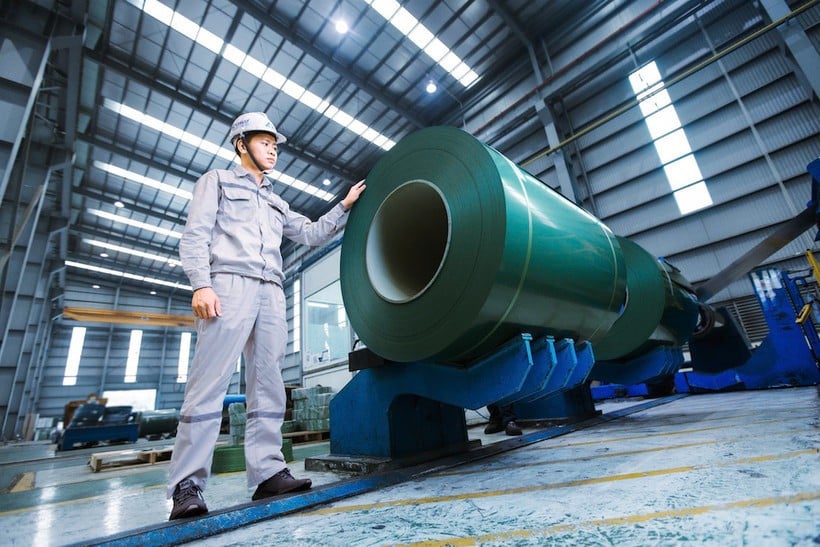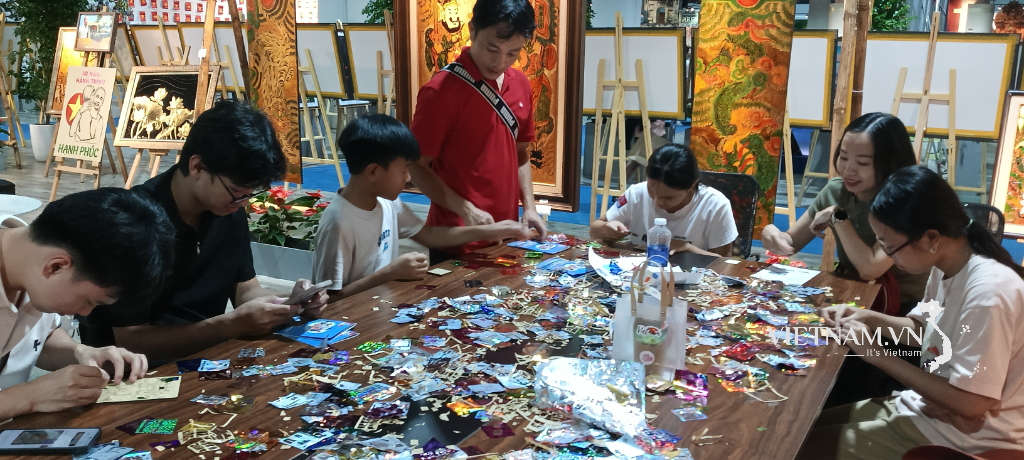
In 2024 alone, Vietnam faced at least seven investigations related to steel, accounting for 26% of all cases involving exported goods. Recently, at the end of August 2025, the US Department of Commerce (DOC) imposed anti-dumping duties ranging from 87.07% to 162.96% on Vietnamese galvanized steel due to suspected origin fraud; Mexico also initiated an anti-dumping investigation into steel wire ropes for the period 2022-2024.
According to experts, the main reason is the practice of "falsifying origin," transferring steel from countries with high taxes to Vietnam to label it "Made in Vietnam," thereby evading taxes. This behavior leads to Vietnamese steel Businesses are suspected of wrongdoing, face high taxes, suffer reduced competitiveness, and damage their international image. Other legitimate businesses are also affected, leading to a decline in exports across the entire industry.
According to the General Statistics Office ( Ministry of Finance ), in the first nine months of 2025, Vietnam exported only 7.92 million tons of steel, worth US$5,174 million, a decrease of 79.6% in volume and 71.7% in value compared to the same period in 2024. If this continues, major markets may stop importing or expand investigations, causing a chain reaction affecting other industries such as textiles, footwear, and electronics. Once national credibility is damaged, restoring trust will take many years. Therefore, to escape the cycle of investigations and affirm a sustainable position, Vietnamese steel businesses have no choice but to proactively improve their capacity and compliance awareness in trade defense.
First, steel companies need to adopt international quality management standards such as ISO 9001 or ASTM, and build strong brands to affirm their value. They should increase supply chain linkages, become self-sufficient in domestic raw materials, and reduce dependence on imports from countries with high tariffs, as this is considered the best "shield" in investigations. In addition, they need to address the lack of transparency in accounting records and the ambiguity of financial reports to avoid suspicion.
Simultaneously, greater emphasis should be placed on trade defense tools, and a thorough understanding of how these measures operate is essential for proactive response and self-protection. In particular, it is necessary to overcome the hesitation and lack of coordination among businesses in the same industry that are affected, stemming from concerns about the disclosure of trade secrets in the face of trade defense cases. This will enable the creation of a unified case file, ensuring that investigations are more convincing, preventing data fragmentation, and providing authorities with sufficient grounds to protect the legitimate interests of businesses.
Therefore, this is a crucial moment for Vietnam's steel industry: choosing between continuing to suffer the effects of trade protection measures or proactively reforming its governance system, enhancing its competitiveness, and demonstrating its transparency to the international market. This requires focusing on product standardization, developing supporting industries, and promoting green and clean production. A sustainable, environmentally friendly steel industry with a clear value chain will be less scrutinized in trade investigations and will better meet the increasingly stringent requirements of major importing partners.
Only when businesses collectively enhance their internal capabilities, adhere to international standards, and uphold business ethics will the reputation of Vietnamese steel become solid; further affirming its position as a heavy industry playing a crucial role in the sustainable and long-term development of the country's economy .
Source: https://baoquangninh.vn/phat-trien-ben-vung-nganh-thep-3379994.html





![[Photo] Prime Minister Pham Minh Chinh receives the Minister of Emergency Situations of the Russian Federation.](https://vphoto.vietnam.vn/thumb/1200x675/vietnam/resource/IMAGE/2026/03/05/1772712011395_ndo_br_thiet-ke-chua-co-ten-76-png.webp)


![[Photo] General Secretary To Lam working with the Central Inspection Committee](https://vphoto.vietnam.vn/thumb/1200x675/vietnam/resource/IMAGE/2026/03/05/1772718314670_a1-bnd-8682-5192-jpg.webp)








































































































Comment (0)